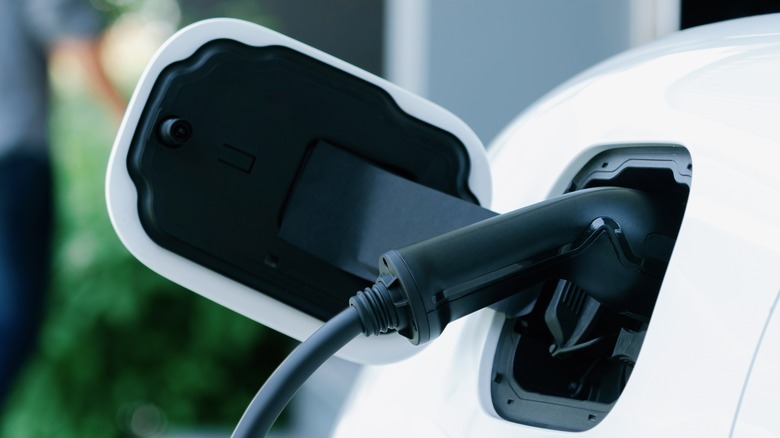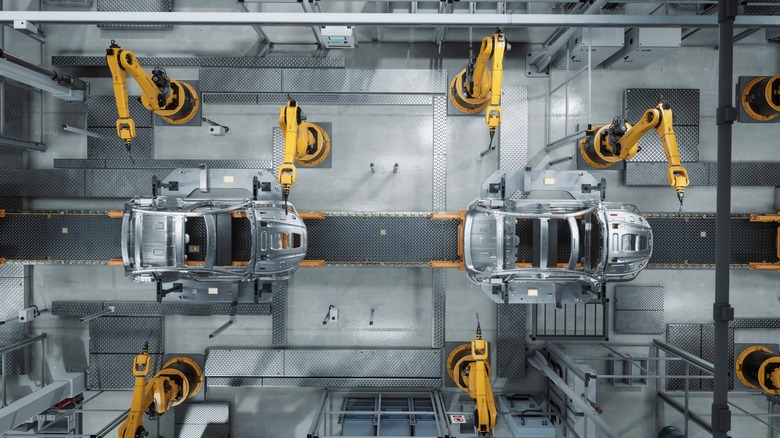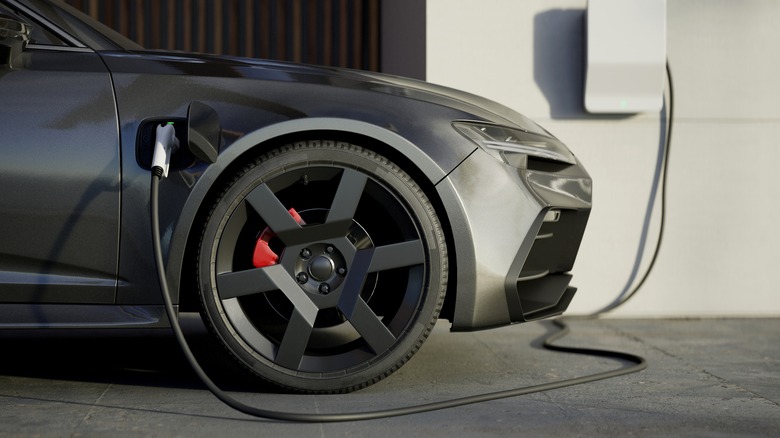Why EV Battery Manufacturing Is Gaining Steam In America
In January 2023, the United States Department of Energy shared its plans to increase electric vehicle (EV) battery production capacity in North America from 55 Gigawatt-hours per year as of 2021 to nearly 1,000 GWh per year by 2030. To facilitate the increase in production capacity, the Department of Energy announced that its battery plant projects will begin production from 2025 onwards.
In these plans, Georgia, Kentucky, and Michigan are primed to lead the United States EV battery manufacturing sector with each of these states expected to manufacture up to 136 gigawatt hours' worth of EV batteries per year by 2030. On the other hand, Kansas, North Carolina, Ohio, and Tennessee plan to produce up to 97 gigawatt hours' of EV battery production in the same timeframe as well. When combined, this manufacturing capacity will be able to support between 10 to 13 million all-electric vehicles annually by 2030, according to the DOE.
Building the American electric dream
With the help of the Inflation Reduction Act of 2022, the single largest investment in climate and energy in American history, we can expect a wave of other EV-related sectors to take flight as well.
With the goal of achieving a net-zero economy by 2050, the IRA provides an additional $40 billion of loan authority for eligible projects under section 1703 of the Energy Policy Act of 2005. In an effort to have more control over its EV supply chain as a whole, the IRA's "Advanced Manufacturing Production Credit" clause provides tax incentives for qualified companies.
In a statement to CBS News, Mike O'Kronley, CEO of battery material manufacturer Ascend Elements, shared that "One way to help offset the need for additional mining is essentially to recycle the [EV] batteries or to recycle all lithium-ion batteries and to harvest the valuable metals that are in them and then put them back into the battery supply chain."
With this, it's no surprise that the U.S. would invest in decreasing its reliance on foreign mining practices for its EV battery requirements. For this reason, all EV batteries which were recycled in the U.S. and EV manufacturing companies who opt for U.S.-recycled electric batteries can receive up to 10 years worth of tax credits.
How manufacturing EV batteries can help Americans
According to Visual Capitalist, the United States only ranked third with a total share of 6% in EV battery production capacity in 2022. On the other hand, China led the rankings with 77% of the global manufacturing capacity, which is unsurprising given its expansive EV supply chain that also includes mining. China also boasts the world's largest EV market, clocking in with almost 52% of global sales in 2021. With 30% to 40% of an EV's cost being due to its battery, it's one of the biggest factors in why electric cars are becoming more expensive. In Q1 2022, Reuters claimed that the average cost of lithium-ion batteries used in EVs was $160 per kilowatt-hour, over 50% higher than the preceding year.
With cost being one of the major barriers to entry for many potential EV owners in the U.S., the move toward domestic production can make it more accessible long-term. According to the Federal Reserve Bank of Dallas, the U.S. investments to improve EV manufacturing capacity will cost more than $40 billion — although, Bloomberg reports that the U.S. will still need to invest at least $87 billion to meet the domestic demand. When it comes to helping ordinary people transition to more sustainable forms of transportation, it definitely takes a village. Despite the cost, by committing to support the EV manufacturing industry, the U.S. will not only support a growing industry through various incentives but also give its people access to better EV technology each year.
The problems with electric vehicle batteries
Lithium-ion batteries require nickel, lithium, cobalt, and other metals for their manufacturing processes, which have been significantly impacted by global supply issues. There is also an alarming social cost to the EV battery manufacturing process, because of the poor labor practices for mining the metals used to produce its lithium-ion batteries. In addition, the carbon emissions from the manufacturing processes also affect the overall footprint an EV owner has on the planet.
Unfortunately, like any other type of lithium-ion battery, EV batteries don't usually last forever and degrade with steady usage. Although EV owners typically have a manufacturer warranty that typically covers 8 years and 100,000 miles, having your EV battery replaced out-of-pocket can cost more than you think. In 2023, Recurrent Auto shares that EV battery replacements range from $5,000 to $20,000, depending on the pack, size, and manufacturer.
In general, many countries also still do not have adequate EV battery disposal systems in place to meet the rising demand. Many EVs still run on lithium-ion batteries, which are known to contain a cocktail of toxic metals. When not disposed of properly, these toxic metals can cause environmental issues, such as water contamination or fire outbreaks. Having economic and legislative support can be the key to encouraging manufacturers to make bigger strides with their research and development. With new battery technologies such as solid-state, cobalt-free manganese-based, and lithium-metal batteries being developed each year, we're likely going to see better options for electric vehicles made by American manufacturers in the EV race soon.



